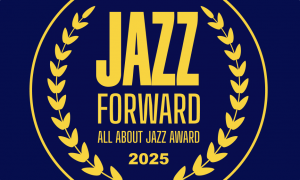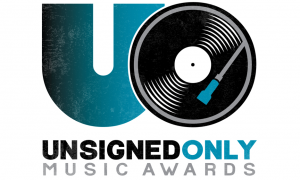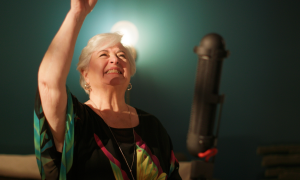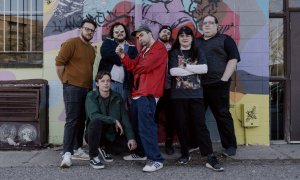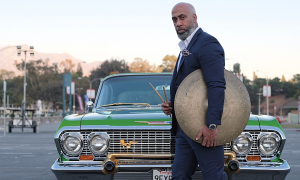
Legendary guitarist Marc Ribot explores the impact of ECM Records move to Spotify as part of broader shift for the label, the effect it will have on artists, and what the next best course of action is.
By Marc Ribot from The Trichordist
Guest Post from the legendary guitarist Marc Ribot. One point that Mr. Ribot makes we would like to further emphasize at the outset: without DMCA reform there is no Ў°marketЎұ for Copyright Royalty Judges to set rates under the MMA. This comes on the heels of a paper from Stan Liebowitz at the University of Texas. The Liebowitz study clarifies how the safe harbor, contrary to its intended purpose, creates an inefficient and unfair advantage for UUCs when bargaining with copyright owners, meaning that UUCs either do not pay for copyright permissions or, if they pay something, they pay less than the market rate.
This, in turn, is seen as a harbinger of the coming of Age Of Streaming.
I donЎҜt think thereЎҜs been so much unanimous celebration of a Ў°new dawnЎұ since Joseph Stalin grew a mustache.
The MMA will indeed, if adopted with the changes proposed by Music Answers and others in the indie world, hopefully expand collection and distribution of songwriter royalties for interactive streaming. But even at the most optimistic outcome, streaming is simply not viable for the majority of indie recording musicians and labels. [1]
And it never will be viable, as long as internet giants like Google/YouTube can profit from copyright infringement with impunity by hiding behind the Ў°safe harborЎұ clause of section 512 of the DMCA.[2] [see glossary of acronyms at the end of the article].
Until then, for the majority of indie artists, the MMA will at best re-arrange the deck chairs on the Titanic, and at worst, weaken the coalition that might have made a real solution possible.
In genres such as jazz, where clusters of small labels have been able to survive the already devastating effects of bit torrent/piracy and YouTube et alЎҜs legal infringement (60% collapse of industry revenue) by creating niche markets based on physical object sales and legal downloads, the signs are already clear that this consolidation/rationalization of streaming (of which the MMA is a component) will drive many of the current labels out of business.
What does Ў°not viableЎұ mean? It means that where once revenue received from the sale or licensing of a recording amounted to more than the cost of producing it, now, it doesnЎҜt.
Ў°Our issue with streaming is so much greater than just whether an organization like A2IM can double the payout from Spotify from $0.004 per stream to $0.008 per stream. The issue is more structural cause weЎҜre fucked at either payout rate.ЎұЎӘYulun Wang, co-owner Pi Recordings
The problem isnЎҜt just that streaming rates arenЎҜt viable, its that they are displacing formsЎӘCDЎҜs, vinyl, and legal downloadsЎӘthat are (or were).
IЎҜm an indie artist who has lost money on three of the last four CDs IЎҜve made. What made them possible at all was the investment of record companies like Pi, whose co-owner is quoted above.
Since its founding in 2001, Pi Recordings has released important recording in and around the jazz idiom by
By Marc Ribot from The Trichordist
Guest Post from the legendary guitarist Marc Ribot. One point that Mr. Ribot makes we would like to further emphasize at the outset: without DMCA reform there is no Ў°marketЎұ for Copyright Royalty Judges to set rates under the MMA. This comes on the heels of a paper from Stan Liebowitz at the University of Texas. The Liebowitz study clarifies how the safe harbor, contrary to its intended purpose, creates an inefficient and unfair advantage for UUCs when bargaining with copyright owners, meaning that UUCs either do not pay for copyright permissions or, if they pay something, they pay less than the market rate.
The Red Ink Beneath StreamingЎҜs Ў°New DawnЎұ
The Music Modernization Act (MMA), creates a mechanism for setting of rates and payment of royalties to publishers by streaming services, while insulating the services from liability for claims outside its structure. It is widely seen as clearing the way for SpotifyЎҜs long awaited IPO.This, in turn, is seen as a harbinger of the coming of Age Of Streaming.
I donЎҜt think thereЎҜs been so much unanimous celebration of a Ў°new dawnЎұ since Joseph Stalin grew a mustache.
The MMA will indeed, if adopted with the changes proposed by Music Answers and others in the indie world, hopefully expand collection and distribution of songwriter royalties for interactive streaming. But even at the most optimistic outcome, streaming is simply not viable for the majority of indie recording musicians and labels. [1]
And it never will be viable, as long as internet giants like Google/YouTube can profit from copyright infringement with impunity by hiding behind the Ў°safe harborЎұ clause of section 512 of the DMCA.[2] [see glossary of acronyms at the end of the article].
Until then, for the majority of indie artists, the MMA will at best re-arrange the deck chairs on the Titanic, and at worst, weaken the coalition that might have made a real solution possible.
In genres such as jazz, where clusters of small labels have been able to survive the already devastating effects of bit torrent/piracy and YouTube et alЎҜs legal infringement (60% collapse of industry revenue) by creating niche markets based on physical object sales and legal downloads, the signs are already clear that this consolidation/rationalization of streaming (of which the MMA is a component) will drive many of the current labels out of business.
What does Ў°not viableЎұ mean? It means that where once revenue received from the sale or licensing of a recording amounted to more than the cost of producing it, now, it doesnЎҜt.
Ў°Our issue with streaming is so much greater than just whether an organization like A2IM can double the payout from Spotify from $0.004 per stream to $0.008 per stream. The issue is more structural cause weЎҜre fucked at either payout rate.ЎұЎӘYulun Wang, co-owner Pi Recordings
The problem isnЎҜt just that streaming rates arenЎҜt viable, its that they are displacing formsЎӘCDЎҜs, vinyl, and legal downloadsЎӘthat are (or were).
IЎҜm an indie artist who has lost money on three of the last four CDs IЎҜve made. What made them possible at all was the investment of record companies like Pi, whose co-owner is quoted above.
Since its founding in 2001, Pi Recordings has released important recording in and around the jazz idiom by

Henry Threadgill
woodwindsb.1944

 Source:
Source:











 Buy Now
Buy Now


